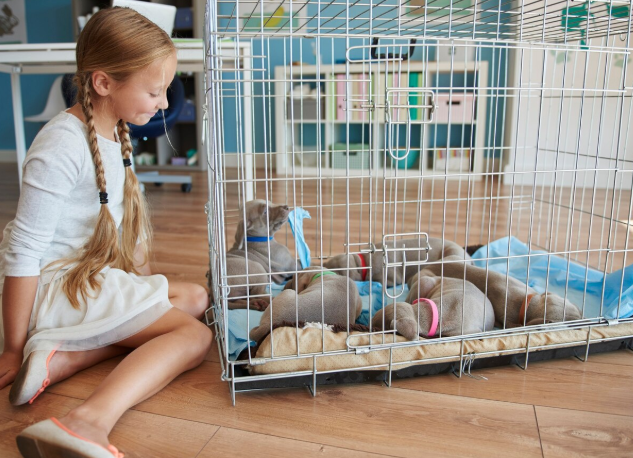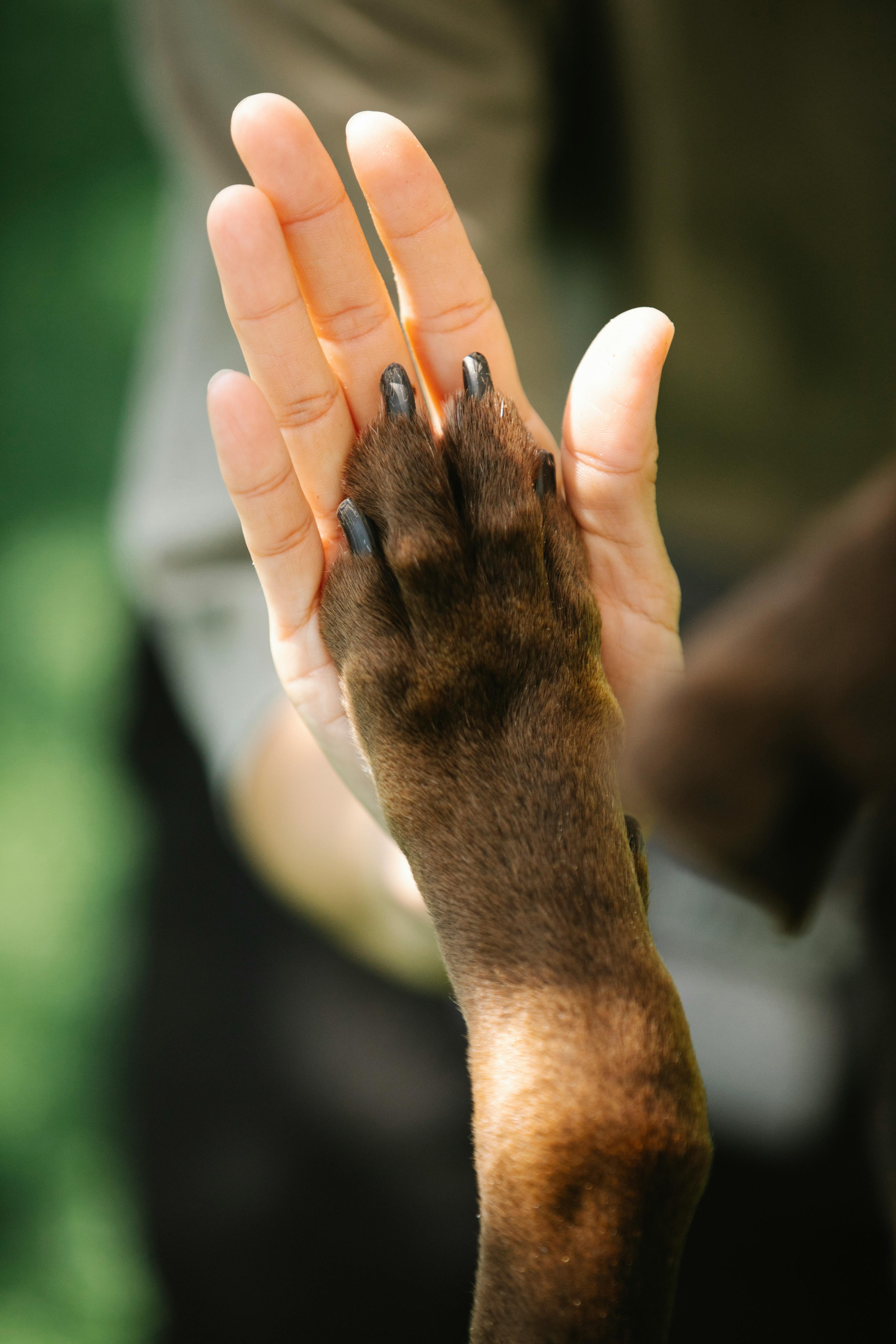
Dogs may bark for many reasons throughout the day such as the mailman visiting, your food delivery arriving, strange noises in the building hallway or a loud truck passing by your house. If you have owned a pooch for any stretch of time you are likely tolerable to a bit of barking here and then. However, we doubt that most dog owners would be willing to tolerate frequent barking at night when everyone needs their beauty sleep right?
In this article, we will focus on the reasons why a dog may be barking at night and what your best course of action might be. Also, this should also improve your dog’s sleeping habits.
Territorial Instincts and Alertness
Adult canines may bark at night due to territorial instincts and alertness for several reasons rooted in their evolutionary history. Dogs are naturally territorial animals, and barking is a primary way for them to establish boundaries, ward off intruders, and communicate with other dogs or animals. When a dog perceives something unusual in its environment during the night, such as a person or animal approaching its territory, the instinct to protect its space can trigger barking.
This instinct is particularly strong in breeds that were historically used for guarding or herding such as German Shepherd, Great Pyrenees, Rottweiler, Old English Sheepdog, and Cane Corso. At night, when there are fewer distractions, the sounds of animals, footsteps/speech by people, and moving motor vehicles can seem more prominent to the dogs due to their heightened senses, triggering a barking response.
This behavior is often seen more in adult dogs because they are typically more confident and experienced in their role as guardians. It’s best to ignore your dog barking at night because if you respond in any way or go to your dog when they bark at night, they will perceive your attention as a positive reward and will likely continue barking. You could leave a toy for the dog to be distracted at night. However, the best way to make sure your dog rests at night is to give them an appropriate opportunity to expend their energy during the day. Give your dog plenty of exercise and engage with them for playtime.
Boredom, Fear, and Anxiety
Due to their stronger sense of hearing and smell, they may feel scared and uneasy at night when there are fewer things to stimulate their brain. As you get ready to lie down and sleep you would normally turn off the lights, get your dog’s toys in a box, and go to bed. So, what is your dog to do if they are not sleepy? Well, they would probably stand watch and monitor for sounds and lights outside of your window. As mentioned above, give your dog time and opportunity to spend their energy so they are not restless in the evening.
Puppies can bark a lot at night, especially when you first bring them home, as they won’t yet be used to their new home and may feel anxious in an unfamiliar environment. It’s essential for puppies that the first few nights in their new home. You should consider leaving an item of clothing with the scent of their mother and a warm bottle to simulate body heat in their kennel. This can make the separation more comfortable for the first few nights.
On the other hand, your dog could be suffering from separation anxiety which can happen if they’re used to spending a lot of time with you, and that changes due to work or personal commitments. Or, perhaps they’ve previously shared a bed with you and you’re trying to encourage them to sleep separately. This is why it’s best to make any changes in your dog’s routine gradually, to minimize the risk of anxiety and stop your dog from barking at night.
Medical Issues
If your dog has suddenly started barking at night they may have suffered an injury through the day which you may have missed. Try to massage your pooch to find an area that may be injured. Usually, when a dog lies to sleep they put a lot of weight on their rib cage so try searching for a sore area there first.
Senior dogs can start to have cognitive episodes of confusion which may cause them to bark, and they also tend to be more uncomfortable at night, especially if they're experiencing joint pains or muscle aches as they get older. The prevalence of CDS in dogs is extremely high, ranging from 28% in 11- to 12-year-old dogs to 68% in 15- to 16-year-old dogs.
Cognitive Dysfunction Syndrome (CDS), often referred to as canine dementia, can cause confusion and anxiety in older dogs. Dogs with CDS may exhibit increased vocalization, particularly at night, due to disorientation, anxiety, or changes in sleep-wake cycles. They might bark due to confusion or frustration. Effective management of CDS may involve making your home more comfortable, implementing dietary changes, adding nutritional supplements, and applying pharmaceutical treatments.
How to Stop a Dog Barking at Night in a Crate?
If you have adopted a puppy recently they are likely to bark throughout the night while they are in their crate. They may need to be fed and go potty more frequently so you should consult your veterinarian about this. Also, your new puppies may simply be afraid of their new environment. Being away from their siblings in a new home can be very scary for them.
Crates provide a safe, enclosed space for your puppy to settle. Start with the crate close to your bed, so your new pup can see you (this should make it easier to respond to their plea for potty or food). You can then gradually start to move the crate further and further away from your bed. Understand that this is a process and both of you will need time to get used to one another.
You will need time to teach them that barking at night is not going to always be rewarded with your attention. Allow your young paw partner the time to grow and learn their boundaries. As difficult as it may be, ignore your dog when they start barking at night. You could use baby monitors or indoor security cameras to check on your pooch without alerting them to your presence.
Conclusion
We can not stress enough that canines need to release their pent-up energy or they become disruptive and destructive. Take long walks, play tug-of-war, and chase your dog. This will strengthen your bond with them and enable you to understand your dog’s personality better. According to a review in Neuroscience & Biobehavioral Reviews, pet ownership and interaction, including play, can contribute to cognitive benefits like enhanced problem-solving abilities and memory, especially in older adults.
The BMC Public Health Journal conducted major research into the influence of dog ownership on the physical activity of adults in 2017. They concluded that dog ownership helps adults engage in healthy physical activity that promotes lower blood pressure and improved heart health.
Spending time playing with your dog can lead to the release of endorphins and oxytocin, which are hormones that reduce stress and promote feelings of happiness and calm. The companionship of a dog can help alleviate symptoms of anxiety and depression, offering emotional support and comfort. A study published in Frontiers in Psychology found that petting or playing with dogs can significantly reduce cortisol levels and increase oxytocin, leading to a reduction in stress and an overall improvement in mood.
In order for you to get a good night’s rest without a dog barking in the immediate vicinity – stay physically active, spend time with your pet, and train them to understand their boundaries.












